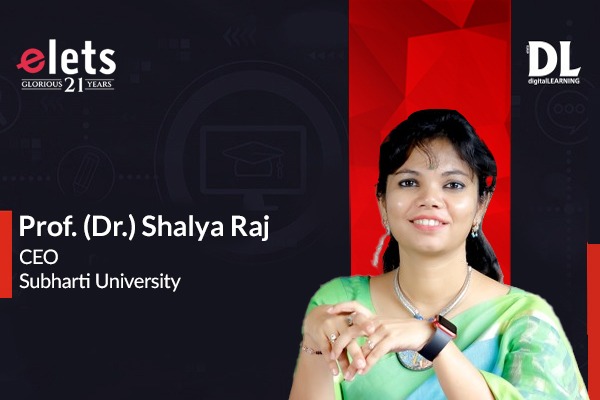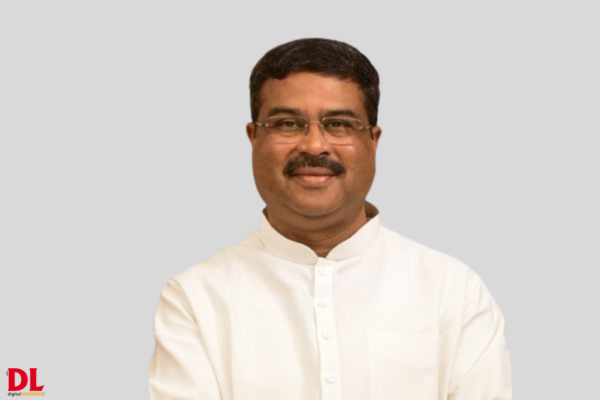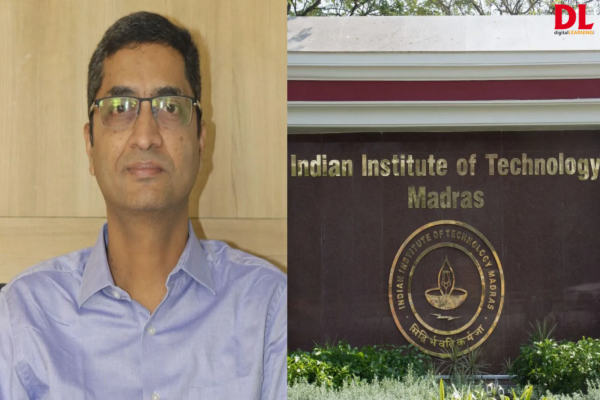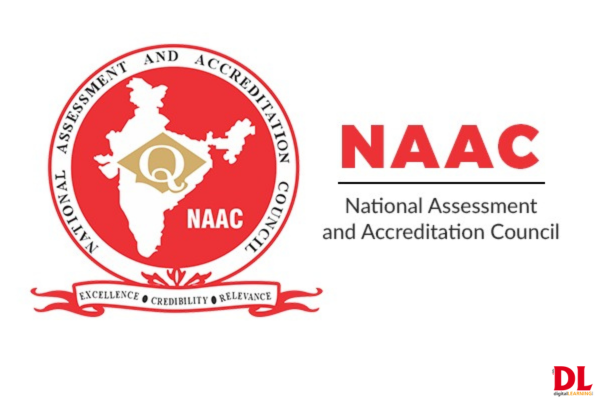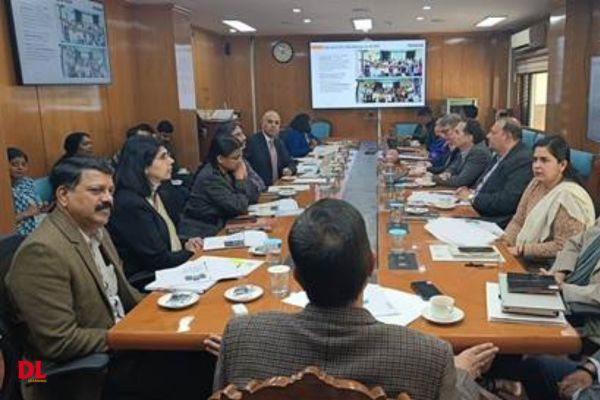The United Arab Emirates (UAE) is widely recognized as a hub of educational advancement and innovation in the Middle East. With its diverse and evolving society, the UAE continuously strives to align its educational system with international standards while preserving its unique cultural identity. Recent years have been particularly transformative, marked by significant reforms, and numerical growth, delving deeply into the quality of education and reshaping the educational andscape in the country.
Central to these developments is the UAE’s dedication to nurturing a knowledge-based economy, aligning with its Vision 2021. This national agenda places education at the forefront of progress, innovation, and social transformation. The government’s proactive strategy in overhauling the education system shows a clear commitment to preparing the next generation with the necessary skills and knowledge to thrive in and contribute to a rapidly changing global landscape.
This approach has led to an education sector that is more aligned with global trends and is deeply rooted in UAE’s rich cultural heritage, ensuring a well-rounded and forward-thinking educational experience for its students.
The Expansion of Educational Infrastructure
The recent developments in the educational infrastructure of the UAE reflect a profound commitment to enhancing and diversifying the nation’s educational landscape. This commitment is evident in the opening of five new schools in Dubai for the academic year 2023-2024. Offering British and Indian curricula, these institutions have added a significant 12,000 new seats, greatly expanding learning opportunities in the region. This strategic response caters to the increasing demand for quality education and also accommodates a diverse range of educational preferences, fostering an environment ripe for academic exploration. Also, by 2027, the inauguration of 50 new schools is projected, poised to accommodate an estimated 1,50,000 students.
Further enhancing educational services, there has been a significant focus on integrating technology in classrooms, offering personalised learning experiences, and fostering inclusivity, especially for students with special needs. This holistic approach ensures that the educational infrastructure evolves not just in quantity, but also in quality, creating an environment conducive to cultivating critical thinking, creativity, and innovation.
In an age dominated by digital advancements, UAE’s educational sector is rapidly embracing new technologies. According to reports by Technavio, the e-learning market is projected to expand significantly, exhibiting a compound annual growth rate (CAGR) of 12.21% from 2023 to 2028. This growth is expected to increase the market’s value by an additional USD 959.01 million, signifying the digital revolution in education. This remarkable growth trajectory highlights the nation’s agility in adopting online learning modalities and digitising educational content. Nearly 70% of the market share is now dominated by online learning and virtual classrooms, a shift accelerated by the COVID-19 pandemic, redefining education in the UAE.
In addition to these developments, the UAE is placing a significant emphasis on early childhood education, recognising the critical impact of early learning experiences. Reforming its approach to lay a strong educational foundation from a young age, UAE is setting the stage for future generations to thrive in a knowledge-based economy.
The country’s educational infrastructure is set to evolve into a dynamic ecosystem that encompasses international collaborations, research-oriented institutions, and innovation hubs. The expected surge in student enrollment, particularly in international schools, indicates a shift towards a globally competitive educational framework. This approach fosters a sustainable and diversified educational landscape, capable of adapting to future global challenges.
However, scaling up the educational infrastructure brings its own set of challenges, particularly in the recruitment and retention of high-quality teaching staff. To address this, initiatives are underway to attract and retain talented educators through competitive compensation packages and professional development opportunities. This comprehensive strategy ensures that the expansion of educational infrastructure is matched by a corresponding elevation in educational excellence.
UAE’s International Collaborations with India and Scotland
The recent expansion and enhancement of the educational infrastructure in the UAE are part of a comprehensive strategy that encompasses the building of new schools and significant international collaborations along with the adoption of advanced technologies in the education sector.
A notable development in this regard is the opening of the Central Board of Secondary Education (CBSE) office in UAE. This move is set to significantly enhance the educational guidance for the substantial number of CBSEaffiliated schools in the region. By establishing a local presence, the CBSE aims to provide more focused support and resources, ensuring that the curriculum and teaching standards are consistently upheld. This is particularly important considering the substantial Indian diaspora in UAE and their preference for the CBSE curriculum.
Additionally, the UAE’s collaboration with India in the field of education marks a significant stride in enriching the educational landscape of both countries. The collaboration between UAE and India’s education ministries is poised to boost academic exchanges and mobility. This partnership will facilitate a more robust exchange of knowledge, skills, and educational practices, greatly benefitting students and educators in both nations. The collaboration is expected to include various initiatives, such as student and teacher exchange programs, joint research projects, and sharing of educational resources and best practices.
The impending MOU between India and the UAE, alongside the MOU with Scotland, highlights the UAE’s commitment to establishing a globally competitive and diverse educational system. These international collaborations are instrumental in transforming the UAE’s educational infrastructure into a dynamic, inclusive, and innovation-driven ecosystem. The establishment of the CBSE office and the UAE-India education collaboration are integral to the UAE’s strategy of fostering a high-quality, diverse, and globally interconnected educational environment.
Major Restructuring in the UAE Education System
In May 2022, a significant restructuring of the UAE’s education system was announced, marking a pivotal shift in the governance of educational institutions. This restructuring involved the appointment of new ministers and the establishment of several authorities to oversee different facets of the educational landscape. This initiative exemplifies the UAE’s commitment to creating a cohesive and streamlined system capable of addressing the challenges of modern education.
The restructuring saw the appointment of Ahmad Belhoul Al Falasi as Minister of Education, tasked with reviewing policies and legislations related to the educational system. Sarah Al Amiri was appointed Minister of State for Public Education and Advanced Technology, responsible for developing strategies to upgrade public schools. H.E. Aisha Abdulla Miran has been appointed as the Director General of KHDA by His Highness Sheikh Hamdan bin Mohammed bin Rashid Al Maktoum, Crown Prince of Dubai and Chairman of the Executive Council. Lastly, Sara Musallam was appointed Minister of State for Early Education, overseeing early education initiatives. These appointments reflect the government’s drive to bring focused expertise to various educational levels.
Several authorities were established to aid the development of different educational sectors. These include the Education and Human Rooted in a strategic approach, these authorities aim to foster quality education and streamline the educational framework across the country.
The restructuring is expected to bring positive changes to the overall quality and outcomes of education in the UAE. The streamlined approach aims to provide targeted resources and support to different educational sectors, ranging from early childhood to higher education.
Education Sector Reforms
The UAE is undergoing a transformative journey in reshaping its education landscape, with comprehensive reforms aimed at creating a dynamic, skill-focused, and globally competitive education system. These strategic changes extend beyond mere infrastructural expansion and are integral to the UAE’s mission of nurturing a knowledge-based economy and preparing students for 21st-century challenges.
Central to these reforms is the commitment to enhance the quality of education. The nation has embraced international best practices, promoting critical thinking, and innovation, & adopting new teaching methodologies. A significant shift towards technologydriven platforms is evident, aiming to elevate education standards across the country. This includes the introduction of International Baccalaureate (IB) programs and other globally recognised curricula, ensuring the UAE students are wellpositioned on the global stage.
The impact of these reforms is measurable. The UAE anticipates an increase in student enrolment, with projections indicating a rise to 1.1 million in the GCC education sector by 2027. The UAE has also recorded the highest enrolment growth rate in the GCC, with a 5.1% compound annual growth rate (CAGR) from 2016 to 2021. Families in the UAE invest significantly in education, with the average annual cost standing at approximately Dh45,676. These figures highlight the escalating demand for quality education and the commitment of families to invest in their children’s future.
Recognising that the cornerstone of quality education lies in the calibre of its teachers, the UAE has focused intensely on attracting, training, and retaining skilled educators. Strategies such as competitive salaries, ongoing professional development opportunities, and a supportive work environment are employed to uphold teaching excellence.
The sector’s growth is also significant. The number of schools is expected to increase from 1,258 in 2022 to 1,308 by 2027. The K-12 market is estimated to be USD 94.7 billion by 2030 with a CAGR of 31.6%, a testament to the substantial investment in primary and secondary education. Furthermore, the UAE’s education market is forecasted to grow at a CAGR of 9.46% between 2023 and 2028, signifying its dynamic expansion.
A key component of the UAE’s approach to enhancing teacher quality involves rigorous recruitment processes, continuous professional development, and incentive schemes. This ensures that educators are not only well-qualified but also motivated and adept in the latest teaching methodologies and technologies.
A significant aspect of the reforms is the investment in educational technologies. Digital classrooms, e-learning platforms, and smart learning programs are pivotal in creating interactive and personalised learning experiences. These technologies prepare students for a digital future and position the UAE’s education system at the forefront of technological integration.
Vocal for Local
The United Arab Emirates has embarked on an ambitious and strategic initiative to boost the involvement of Emirati nationals in the private education sector, through the Teaching Specialists Programme. This programme, part of a larger national strategy, is a significant move to infuse local talent into a variety of roles within the educational realm, ranging from teaching posts in key subjects like the Arabic language, Islamic studies, social studies, and special education, to roles in educational guidance and leadership.
The quantitative goals of this programme are clear and defined: to place 4,000 Emiratis in the private education sector for four years. This target is a testament to the UAE’s commitment to developing a workforce that is globally competitive and deeply rooted in local culture and values. The initiative is a substantial part of the UAE government’s broader Nafis programme, introduced in September 2021, which aims to ensure that 10% of all jobs in the private sector are filled by citizens by the end of 2026. As of the latest updates, over 82,000 Emiratis are employed outside of the public sector, indicating a significant increase since the initiation of the campaign.
The programme aims to provide employment opportunities and empower UAE nationals with the necessary skills and qualifications to excel in the education sector. This involves comprehensive training programmes and professional development opportunities, ensuring that Emirati educators are well-prepared to inspire and guide future generations. The training encompasses traditional teaching skills as well as innovative educational technologies and modern pedagogical approaches. The goal is to create a workforce that is skilled in their subject areas and adept at engaging and inspiring students in a rapidly evolving educational landscape.
The long-term implications of this initiative are substantial. By 2026, with an increased percentage of Emiratis in the private sector, the education sector is likely to see a significant transformation in its demographic composition and approach to teaching. This change is projected to bring about a deeper integration of local culture and values in education, enriching the learning experience for students and creating a more diverse and dynamic educational environment in the UAE.
Looking Ahead with UAE’s Education Vision
The UAE is rapidly becoming a hub for students and teachers from around the world, blending different cultures and ideas. This approach provides education, builds global understanding, and prepares students for a connected world.
The future of education in the UAE is exciting. The country is on a path to becoming a global centre for learning and innovation. This isn’t just good for UAE but it’s a valuable contribution to education worldwide.
Looking forward, the UAE isn’t just getting its students ready for what’s next, it’s shaping the future itself. Education here is about unlocking potential, connecting cultures, and driving global progress. The UAE is not just following in the footsteps of others, it’s leading the way in creating a future where education opens doors to endless possibilities.






